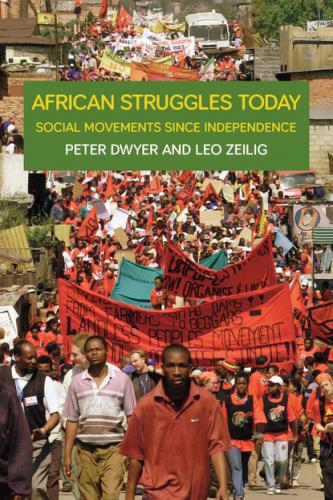At the same time, African states have withdrawn support from small-scale agriculture and promoted cash crops that require concentrated capital and centralized landholdings. As a result, processes of primitive accumulation have either resumed or accelerated—far beyond the pace evident in the period of state capitalism. The immediate postcolonial state reforms in support of farmers (such as assistance with irrigation, credits and subsidies for seed and fertilizer, or direct tariff protection) constituted a political intervention that stemmed the flow of migration to the cities. The withdrawal of such support is a political intervention that goes beyond everyday economic processes. As a result, Africa has finally begun to experience the reduction of the active agricultural workforce that was central to the capitalist revolution in western Europe. The vast reserve army of urban migrants thus created, like its European predecessor, has not been easily absorbed into the urban workforce, but rather been “turned en masse into beggars, robbers, vagabonds, partly from inclination, in most cases from stress of circumstances.”61
In this respect, Mike Davis’s thesis in Planet of Slums is correct. Many of the urban unemployed created over the past thirty years cannot be counted as members of a reserve army, because they have never had a wage job and cannot expect ever to have one. On the other hand, this group is mixed together in the cities with the employed segment of the working class. The political consequences of this are vital for radical social movements. They may follow a lead from the working class, but in this the proletariat faces competition from other forces: from sectarian and communal organizations, from religious movements, and from the intelligentsia, among others.62
A further impediment to working-class leadership in Africa is that class power has been diluted. This has taken place not just because workers have lost their jobs, but also because of a flood of destitute urban residents whose presence in the cities and bidonvilles is a product of renewed primitive accumulation and neoliberal stagnation.
Analyzing the particular role of social movements in African society requires an understanding of the very real effectiveness of such movements in bringing about progressive change on the continent and their limitations in sustaining and deepening those changes. The authors believe that social movements in general and working-class-influenced movements in particular have a vital role to play in bringing about the sorts of changes that would improve the lives of the vast majority of Africans and even enable them to wield significant power over societies whose trajectory has, for the most part, been determined by elites, both international and indigenous. However, it is therefore necessary to explain historically how social movements have influenced social change and why this influence has rarely translated into more effective and lasting transformations in African society. It is to this history that the book now turns.
Конец ознакомительного фрагмента.
Текст предоставлен ООО «ЛитРес».
Прочитайте эту книгу целиком, купив полную легальную версию на ЛитРес.
Безопасно оплатить книгу можно банковской картой Visa, MasterCard, Maestro, со счета мобильного телефона, с платежного терминала, в салоне МТС или Связной, через PayPal, WebMoney, Яндекс.Деньги, QIWI Кошелек, бонусными картами или другим удобным Вам способом.
